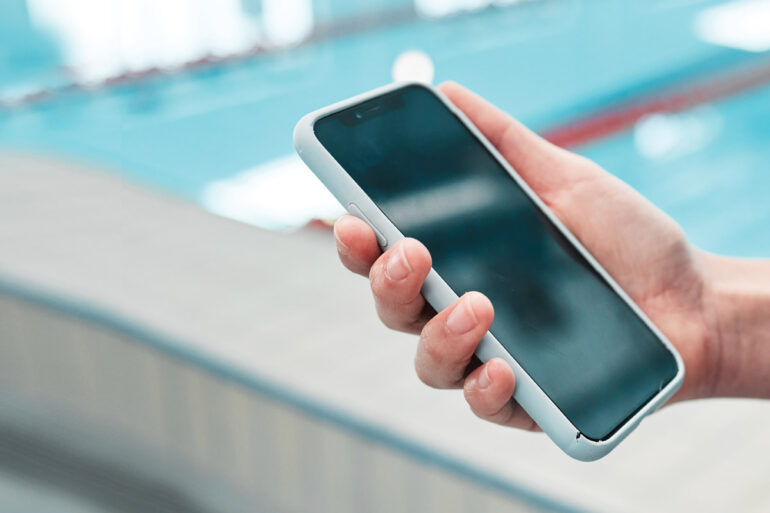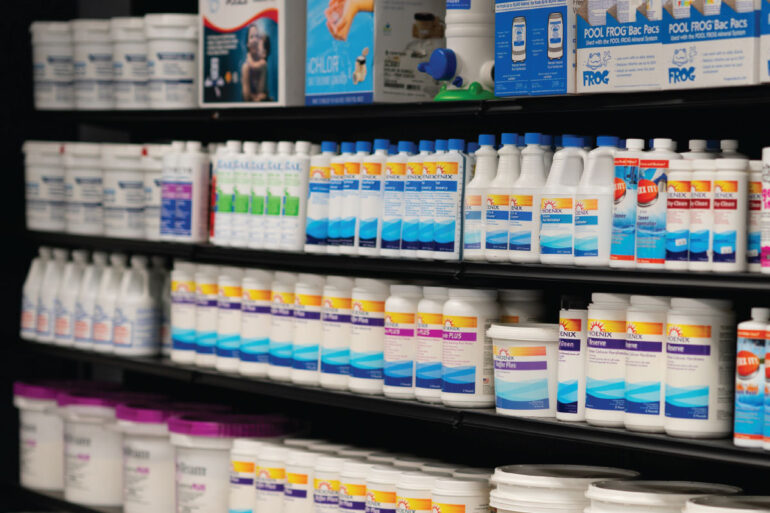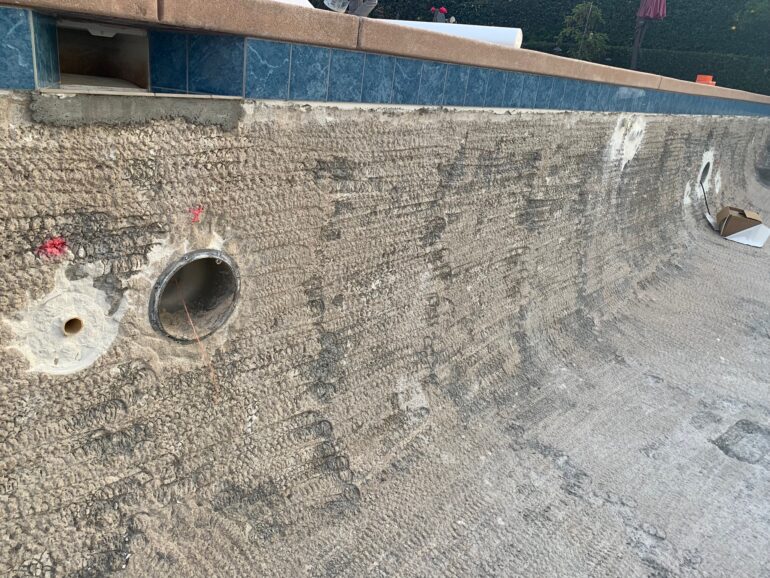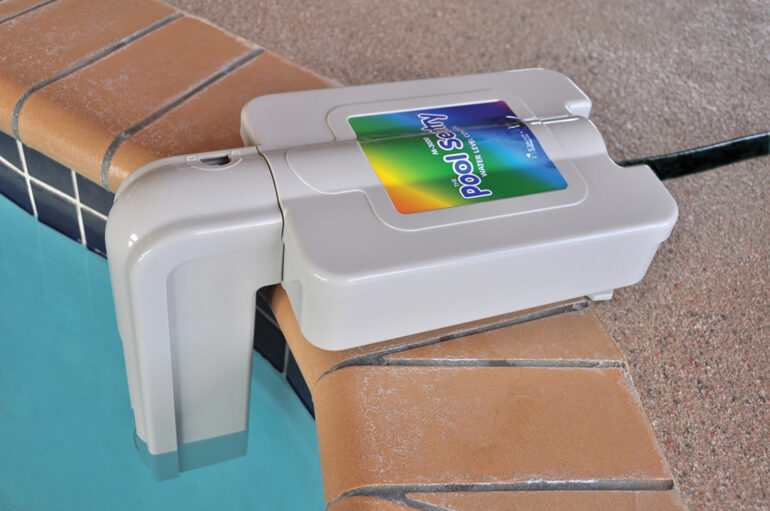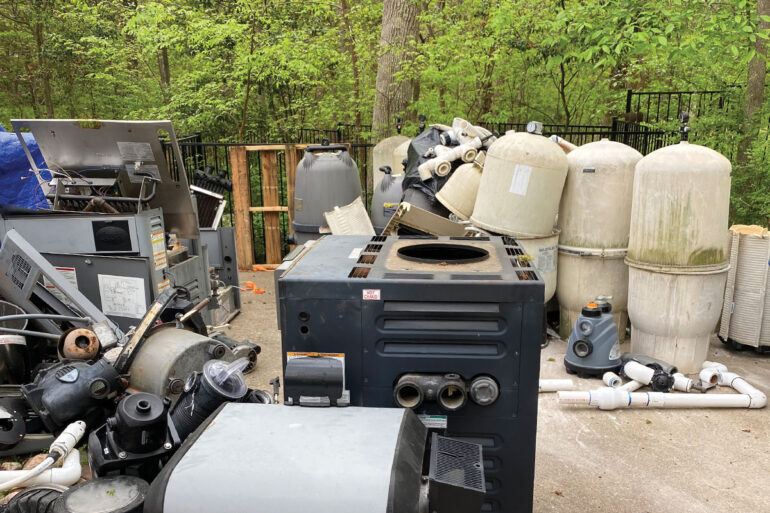Stop Photoaging, Wear Sunscreen
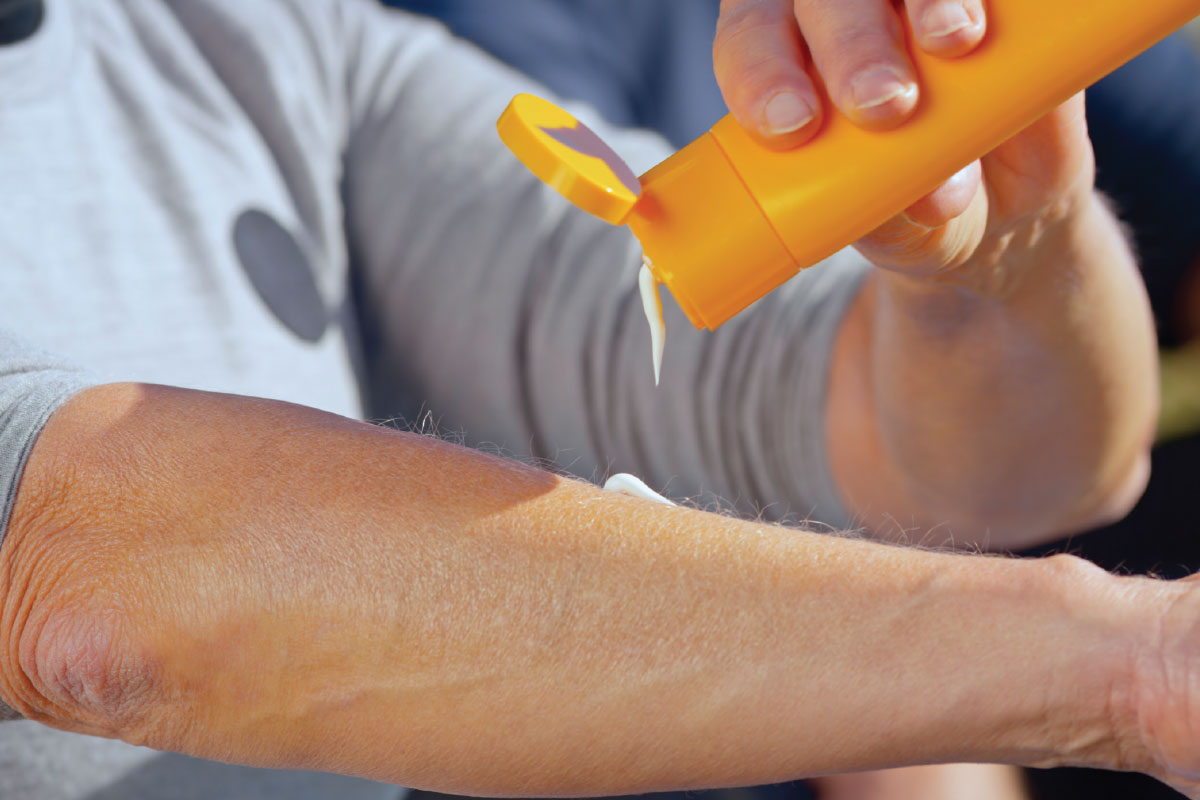
Pool experts share insights about sun protection
Summer is here and for many that means hours spent relaxing by the pool and soaking up the sun. But for pool technicians, who average 20 to 30 hours of outdoor work a week, avoiding the sun is a priority.
Joe Benard, a pool technician with Spartan Pool & Patio in Norman, Oklahoma, spends anywhere from 30 to 35 hours a week exposed to the sun. To protect himself from the harsh UV light, Benard wears a long sleeve t-shirt, sunglasses and a wide-brim hat with a mesh net on the back to cover his neck.
In addition to his attire, Benard has a system in place to make sure he doesn’t overheat.
“I start my day with a gallon of water and another liter-size water bottle,” Benard says. “By the end of my shift — I go in at 7 a.m., and I leave around 4 p.m. or 5 p.m. — my gallon is almost completely gone, and my liter is gone.”
Benard says hydration, taking frequent breaks and listening to your body are all essential parts of any day spent in the sun.
“You start to feel really worn out, you start to feel very tired,” Benard says. It may be tempting to push through the fatigue to get the job done, but sometimes the most productive thing you can do is take a break.
For Benard, that means escaping the sun by sitting in his truck with the air conditioner on and drinking lots of water. These short, intermittent breaks can also serve as an opportunity to reapply sunscreen.
You can’t just put it on once and [think] you’re good for the day … [I reapply] every couple of hours or if I get to a point where I can’t smell it on me. I’m pretty conscious about that.”
Erin Ward, Swim Clear Pool Service
“You can’t just put it on once and [think] you’re good for the day,” says Erin Ward, owner of Swim Clear Pool Service in Branford, Florida.
Ward is conscious about reapplying sunscreen because he’s seen the effects the sun can have on people’s skin like premature aging also known as photoaging.
“I always try to do a higher SPF for the face,” Ward says. He prefers “little bottles of CeraVe — it’s just for your face — and I’ll splurge on that stuff because it’s not all greasy.”
Even if your skin isn’t prone to sunburn, it’s still a good idea to apply sunscreen. No one is immune to the effects of the sun, especially when it comes to photoaging and skin cancer.
Anyone spending extended periods in the sun should apply broad-spectrum, water-resistant sunscreen of at least 30 SPF to all areas of exposed skin, every two hours or after sweating or swimming, according to an article published by John Hopkins University.
“Reapply, reapply, reapply,” is the mantra behind good sunscreen application.
“[I reapply] every couple of hours or if I get to a point where I can’t smell it on me,” Ward says. “I’m pretty conscious about that.”
Even on cloudy days, the risk of sunburn is still present.
On overcast days, “[people] let their guard down,” Ward says. “They don’t use sunscreen or worry at all, and then they get burned.”
It may not seem like a big deal, but how you guard your skin now can have long-term effects. It’s necessary to take adequate precautions, whether that’s wearing sunscreen or long sleeves.
Protecting your skin and investing in good quality gear doesn’t have to break the bank.
“I just find whatever is the cheapest,” Ward says. “Those long sleeve shirts will sell for $50 and up. I never pay more than $20 for one of those.”
Find what works for you and stick with it. Invest now, and save your skin from premature aging, skin cancer and more.

